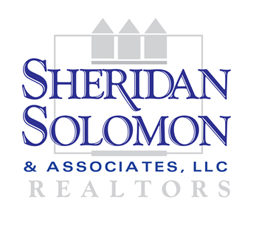Many first-time home buyers spend years saving up for a down payment. Buying property is an enormous accomplishment, but it may not require as much saving as you think. According to nerdwallet.com, 62% of Americans believe you need at least a 20% down payment to buy a home, when in fact, you don’t.
The 2022 trends report from the National Association of Realtors shows that the median down payment percentage is just 13%. Among buyers aged 23-31, that median drops to 8%. These numbers not only prove that down payments less than 20% are common, but also that younger homebuyers put down less cash than the average homebuyer.
In reality, young buyers often do not have enough time or resources to save up a 20% down payment before they are ready to purchase. Therefore, it is important for buyers to learn about the loan options that make homeownership possible without a large down payment. In this post, we will discuss four types of loans with affordable down payments, eligibility for each type, and tips for choosing the right one.
Do You Really Need a 20% Down Payment?
No, you do not need a 20% down payment to purchase a home. In fact, there are several types of loans that allow homebuyers to put down very little cash. The four most common fixed-rate mortgage loans are conventional, FHA, VA, and USDA. Let’s dive deeper into each of these.
Conventional
A conventional loan is any loan offered by a private lender which is not backed by a government agency. First-time home buyers can put as little as 3% down on a conventional loan. To be eligible, QuickenLoans.com reports that you will typically need a credit score of at least 620, a debt-to-income ratio below 43%, and two years of stable employment.
Additionally, conventional loans require private mortgage insurance (PMI) for down payments less than 20%. This additional expense is added on to your monthly mortgage payment, but it is no longer required once you have paid off 20% of the total loan amount.
FHA
An FHA loan is guaranteed by the Federal Housing Administration, and therefore, has less strict qualifications for buyers. The minimum down payment amount for FHA is 3.5%. To qualify for this, FHA.com shows that you must have a credit score of 580 or higher, a debt-to-income ratio below 43%, steady income, and proof of employment. Similarly to conventional loans, FHA requires buyers to pay a mortgage insurance premium each month if their down payment is lower than 20%. However, this premium never drops off during the life of the loan.
VA
VA Loans are exclusively offered to veterans and active military personnel. The VA loan program provides 100% financing for any home you can qualify for, which means your down payment can be zero. This program does not require mortgage insurance, however, it requires a one-time funding fee that can be rolled into the mortgage. Additionally, VA loans carry competitively low interest rates, which usually beat the market rate.
Aside from meeting certain military duty requirements, buyers must provide a certificate of eligibility to qualify. Also, the house being purchased must pass a basic inspection that checks the structural integrity, functionality, and safety of the building.
USDA
Lastly, a USDA loan, which is backed by the United States Department of Agriculture, is another loan program that allows buyers to put 0% down. USDA loans are only available for homes that are located in a rural, or less populated suburban area. You can easily check to see if the location of the home is eligible by typing in the address on the USDA website. Also, buyers’ household income must not exceed 115% of the area’s median income. USDAloans.com shows that other eligibility requirements include a credit score of 640 or better, and a debt-to-income ratio under 41%.
Additional Options
In addition to the loan programs listed above, homebuyers may also be able to qualify for down payment assistance, or DPA. MortageReports.com claims that there are over 2,000 DPA programs across the country. If none of these programs work for you, consider using funds gifted from a family member or close friend. Most loans allow gift funds to be used toward a down payment, but it is best to confirm with your lender.
Making Financial Decisions
When choosing the best loan option, be sure to consider interest rates, APR, monthly payments, and length of the loan. Keep in mind, putting a higher amount toward your down payment does have benefits. For example, you might enjoy a lower interest rate, smaller monthly payments, and less interest paid over the life of the loan. If you put down 20% or more, you can also avoid mortgage insurance.
On the other hand, any money you put down will not be easy to liquidate. This means you will have less accessible cash to use for bills, repairs, furniture, or emergency funds. These decisions can be complicated, especially if you have never owned a home. Just remember, working with a local lender and real estate agent will help you make smart financial decisions that align with your goals.
Overall, there are several ways to avoid a 20% down payment when purchasing a home. If saving up for a down payment was previously holding you back, you should now have the knowledge you need to take the next step. Reach out to a local lender and real estate agent to talk about your goals and financial options.
Our team of exceptional agents at Sheridan Solomon and Associates have the tools, resources, and experience to help you find your new home within a budget you are comfortable with. If you would like to be connected to one of our agents, please give us a call at (478) 746-2000 or stop by either of our locations in Macon or Warner Robins. You can also access our latest listings and read about our team at www.sheridansolomon.com.
Macon: (478) 746-2000 | Warner Robins: (478) 333-2277
